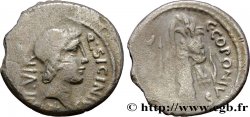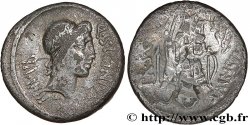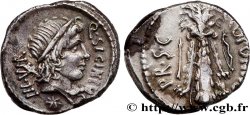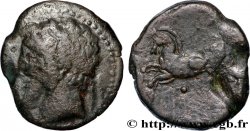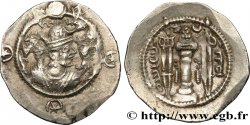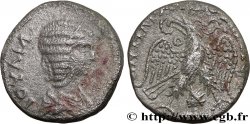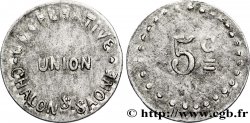E-auction 520-434694 - brm_272676 - SICINIA Denier
You must signin and be an approved bidder to bid, LOGIN TO BID. Accounts are subject to approval and the approval process takes place within 48 hours. Do not wait until the day a sale closes to register. Clicking on « bid » constitutes acceptance of the terms of use of cgb.fr private e-auctions.
Bids must be placed in whole Euro amounts only. The sale will start closing at the time stated on the item description; any bids received at the site after the closing time will not be executed. Transmission times may vary and bids could be rejected if you wait until the last second. For further information ckeck the E-auctions F.A.Q.
NO BUYER'S FEE.
NO BUYER'S FEE.
| Estimate : | 280 € |
| Price : | 210 € |
| Maximum bid : | 220 € |
| End of the sale : | 03 April 2023 14:21:40 |
| bidders : | 11 bidders |
Type : Denier
Date: 49/48 AC.
Mint name / Town : Irregular mint
Metal : silver
Millesimal fineness : 950 ‰
Diameter : 17,5 mm
Orientation dies : 2 h.
Weight : 2,92 g.
Rarity : R1
Coments on the condition:
Exemplaire avec une magnifique patine de médaillier à reflets bleus irisés et mordorés. Portrait de haut relief occupant la plus grande partie du champ
Obverse
Obverse legend : Q. S[ICINIVS - II]I. VIR.
Obverse description : Tête diadémée d’Apollon à droite.
Obverse translation : “Quintus Sicinius Triumvir”, (Quintus Sicinius, magistrat monétaire).
Reverse
Reverse legend : PIET[AS].
Reverse description : Tête de la Piété à droite.
Reverse translation : “Pietas”, (la Piété).
Commentary
Poids très léger. Fourré. Hybride ou faux d’époque. Semble complètement inédit et non recensé. Manque à tous les ouvrages consultés. Petites contremarques sur les visages.
Very light weight. Lined. Hybrid or period fake. Appears to be completely unpublished and unlisted. Missing from all consulted works. Small countermarks on the faces
Very light weight. Lined. Hybrid or period fake. Appears to be completely unpublished and unlisted. Missing from all consulted works. Small countermarks on the faces







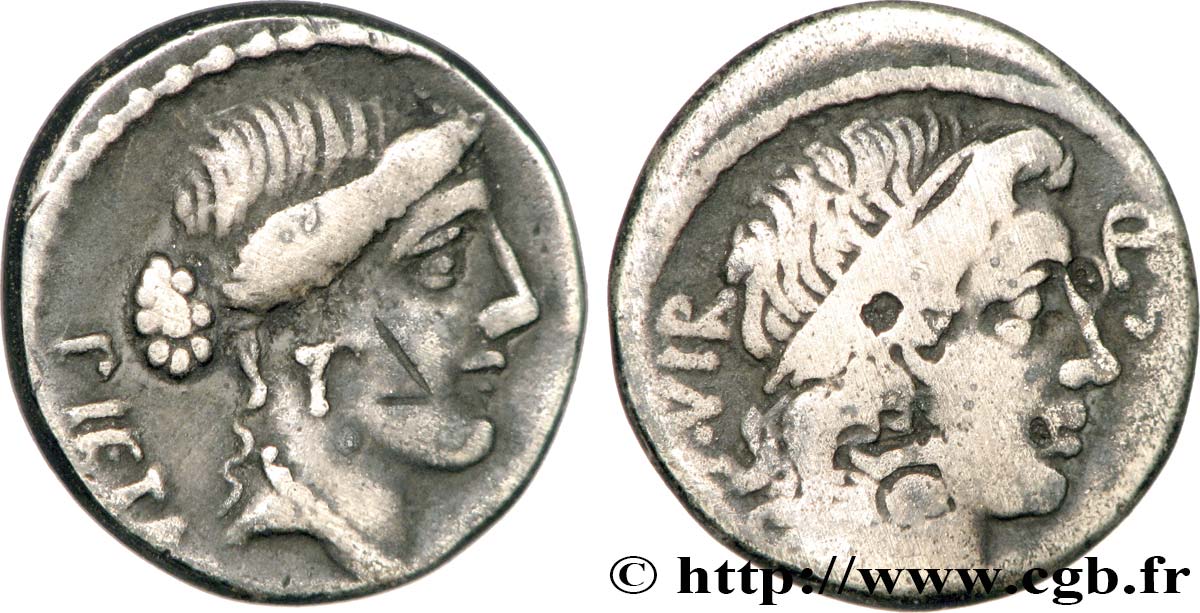
 Report a mistake
Report a mistake Print the page
Print the page Share my selection
Share my selection Ask a question
Ask a question Consign / sell
Consign / sell
 Full data
Full data

